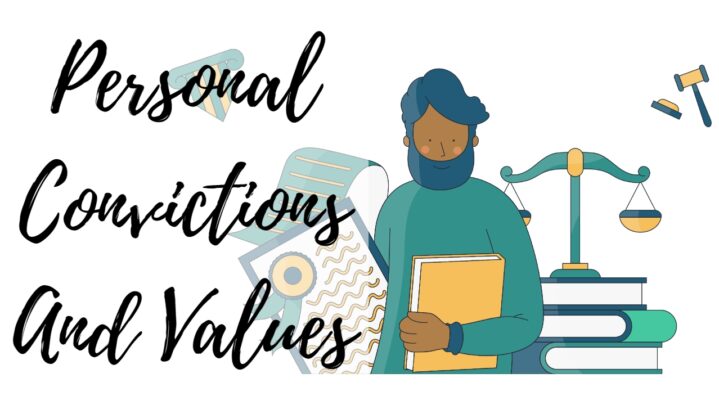Honesty, integrity, compassion, and respect are universal and timeless values that form the foundation of personal convictions. Religious beliefs, political viewpoints, and philosophical perspectives are all examples of personal convictions. Life experiences, family background, cultural and societal factors, and education all impact these convictions.
Personal convictions and ideals are essential factors in determining one’s interactions with others. Individuals who value honesty and integrity, for example, are more likely to have good and trusted relationships because these qualities promote open communication and openness. Individuals who emphasize material money and power, on the other hand, may have more troubled relationships, as these values can lead to selfish conduct and a lack of empathy for others.
Personal convictions and ideals can also influence a person’s job and personal life decisions. Individuals who value community service and assisting others, for example, may seek professions in non-profits or social work, whereas those who value creativity and invention may pursue careers in the arts or technology.
Finally, personal convictions and values help individuals in making meaningful and purposeful decisions. They assist develop an individual’s identity and worldview by providing a feeling of direction and stability. We may make educated decisions that accord with our views and lead to a full and meaningful existence if we are cognizant of our values and convictions.
Also Read: Understanding The Meaning Of Peace





